
Children categories
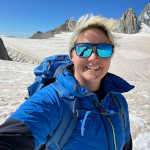 PhD student in polar sciences at Ca’ Foscari University of Venice. Bachelor graduated in Physics at University of Torino and master graduated in Physics of Meteoclimatic System at University of Torino. The master thesis was based on an analysis of the Apollo cyclone and its possible transition to MEDIterranean hurricane (MEDICANE) during the 26-29th October 2021 using the WRF meteorological model.
PhD student in polar sciences at Ca’ Foscari University of Venice. Bachelor graduated in Physics at University of Torino and master graduated in Physics of Meteoclimatic System at University of Torino. The master thesis was based on an analysis of the Apollo cyclone and its possible transition to MEDIterranean hurricane (MEDICANE) during the 26-29th October 2021 using the WRF meteorological model.
Now she is working on remote sensing analysis of polar regions especially on the comparison of land and satellite measures near the Thule High Arctic Atmospheric Observatory (THAAO) in Greenland.
 Bachelor in Geology at the Federal University of Rio Grande do Sul (UFRGS) and Master in Geochemistry from the same University. Since 2022 is developing his PhD thesis at Ca’ Foscari University of Venice in the program of Polar Sciences studying organic molecules in an Andean ice core to unveil the paleofire history in the Amazon region.
Bachelor in Geology at the Federal University of Rio Grande do Sul (UFRGS) and Master in Geochemistry from the same University. Since 2022 is developing his PhD thesis at Ca’ Foscari University of Venice in the program of Polar Sciences studying organic molecules in an Andean ice core to unveil the paleofire history in the Amazon region.
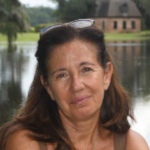 Laura Zucconi Galli Fonseca (h-index 33) is Associate Professor in Botany from 2005. She has been involved in Antarctic Research projects from 1992 both as PI or responsible of RU, as well as in projects in other extreme environments, as the Arctic (INTERACT-Horizon 2020) and Alps (PRIN 2015, PRIN 2019, PRIN 2022). She joined the 2014 Arctic expedition (Ny-Ålesund) and six Italian Antarctic Expeditions (XIX, XXVI, XXXI, XXXIII, XXXV, XXXVII), appointed by the Italian National Research Council (CNR) as Scientific Coordinator of the research activities carried out at the Italian Base during the XXVI, XXXV, and XXXVII Expeditions. Member of the Editorial Board of Section ‘Extreme Microbiology’ in Frontiers in Microbiology. Guest Associate Editor of two topics for Frontiers in Microbiology and two topics for Biology (MDPI).
Laura Zucconi Galli Fonseca (h-index 33) is Associate Professor in Botany from 2005. She has been involved in Antarctic Research projects from 1992 both as PI or responsible of RU, as well as in projects in other extreme environments, as the Arctic (INTERACT-Horizon 2020) and Alps (PRIN 2015, PRIN 2019, PRIN 2022). She joined the 2014 Arctic expedition (Ny-Ålesund) and six Italian Antarctic Expeditions (XIX, XXVI, XXXI, XXXIII, XXXV, XXXVII), appointed by the Italian National Research Council (CNR) as Scientific Coordinator of the research activities carried out at the Italian Base during the XXVI, XXXV, and XXXVII Expeditions. Member of the Editorial Board of Section ‘Extreme Microbiology’ in Frontiers in Microbiology. Guest Associate Editor of two topics for Frontiers in Microbiology and two topics for Biology (MDPI).
Her scientific activity focuses on microbial ecology, in particular on Antarctic soil and cryptoendolithic communities distribution, biodiversity and adaptation to different stresses. In the last years, her research is being extended in a deeper analysis of soil microbial communities through molecular approaches, to describe the effects of environmental conditions on their composition, functionality and adaptability. Her research activities range among different fields: systematic and taxonomy of filamentous fungi, ultrastructural morphology, molecular biology, astrobiology, adaptive responses to stress conditions – including real and simulated space conditions – of both single species and whole fungal communities.
![]() http://orcid.org/0000-0001-9793-2303 Web of Science ResearcherID: U-9781-2018
http://orcid.org/0000-0001-9793-2303 Web of Science ResearcherID: U-9781-2018
 She obtained a Bachelor's and Master's degree in Computer Engineering at the University of Florence and a Ph.D. in Information Engineering (nonlinear dynamics and complex systems) at the same University. She later worked as a post-doc fellow at the CNR Bioeconomy Institute. She currently holds the role of technologist at the Institute of Polar Sciences of the CNR, based in Bologna, collaborating on the data management and administration of the IT infrastructures of the NADC (National Antarctic Data Center) and IADC (Italian Arctic Data Center) projects. Thanks to experience in the field of data management and their analysis also through machine learning techniques, it helps researchers publish and share the data collected from research, making them compatible with modern standards and adhering to the principles of data FAIRness and Open Science.
She obtained a Bachelor's and Master's degree in Computer Engineering at the University of Florence and a Ph.D. in Information Engineering (nonlinear dynamics and complex systems) at the same University. She later worked as a post-doc fellow at the CNR Bioeconomy Institute. She currently holds the role of technologist at the Institute of Polar Sciences of the CNR, based in Bologna, collaborating on the data management and administration of the IT infrastructures of the NADC (National Antarctic Data Center) and IADC (Italian Arctic Data Center) projects. Thanks to experience in the field of data management and their analysis also through machine learning techniques, it helps researchers publish and share the data collected from research, making them compatible with modern standards and adhering to the principles of data FAIRness and Open Science.
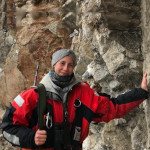 Bachelor in Biology at the Neuchâtel University, Switzerland, and Master of Science in Ecology and Conservation at the University of Groningen, Netherlands. Currently working for the CNR – Institute of Polar Sciences (CNR – ISP) in Venezia Mestre. She is Station Leader of the Italian Arctic station Dirigibile Italia in Ny-Ålesund, Svalbard. As Station Leader, she works daily on the field and in the lab, besides taking care of some parts of the station’s administration.
Bachelor in Biology at the Neuchâtel University, Switzerland, and Master of Science in Ecology and Conservation at the University of Groningen, Netherlands. Currently working for the CNR – Institute of Polar Sciences (CNR – ISP) in Venezia Mestre. She is Station Leader of the Italian Arctic station Dirigibile Italia in Ny-Ålesund, Svalbard. As Station Leader, she works daily on the field and in the lab, besides taking care of some parts of the station’s administration.
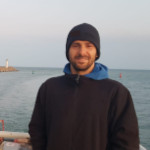 Dr. Francesco Paladini de Mendoza's research focuses mainly on the dynamic processes at the water-sediment interface triggered by littoral and deep bottom currents. Over time, he has gained much experience in field measurements and management of instruments and platforms for monitoring the chemical and physical properties of the marine environment. He actively participates in the management of some observational network infrastructures (EMSO-ERIC and SiOS). He has published 21 scientific papers emphasizing measurement and multidisciplinary approach in the study of the marine environment. He has participated in oceanographic and geological-marine expeditions in the Mediterranean Sea and Oceans, accumulating more than 400 operational days at sea.
Dr. Francesco Paladini de Mendoza's research focuses mainly on the dynamic processes at the water-sediment interface triggered by littoral and deep bottom currents. Over time, he has gained much experience in field measurements and management of instruments and platforms for monitoring the chemical and physical properties of the marine environment. He actively participates in the management of some observational network infrastructures (EMSO-ERIC and SiOS). He has published 21 scientific papers emphasizing measurement and multidisciplinary approach in the study of the marine environment. He has participated in oceanographic and geological-marine expeditions in the Mediterranean Sea and Oceans, accumulating more than 400 operational days at sea.
![]() http://orcid.org/0000-0002-9495-3878
http://orcid.org/0000-0002-9495-3878
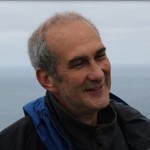 Roberto Colombo is professor of Remote Sensing at the Department of Environmental Sciences, University of Milano Bicocca. The main research interest is to develop remote sensing tools for quantitative estimation of land surface properties. He works with a wide range of Earth Observation data at different scales and geophysical methods, assimilating multi-source, multi-spectral and multi-temporal remote sensing data, from field spectroscopy to satellite level for modelling terrestrial and environmental dynamics, with focus on vegetation fluorescence and snow properties. Current activities include space mission concepts and definition, airborne campaigns and field cal/val strategies, engineering and design of proximal remote sensing instruments, algorithm development, environmental modelling and new applications.
Roberto Colombo is professor of Remote Sensing at the Department of Environmental Sciences, University of Milano Bicocca. The main research interest is to develop remote sensing tools for quantitative estimation of land surface properties. He works with a wide range of Earth Observation data at different scales and geophysical methods, assimilating multi-source, multi-spectral and multi-temporal remote sensing data, from field spectroscopy to satellite level for modelling terrestrial and environmental dynamics, with focus on vegetation fluorescence and snow properties. Current activities include space mission concepts and definition, airborne campaigns and field cal/val strategies, engineering and design of proximal remote sensing instruments, algorithm development, environmental modelling and new applications.
 Research associate at CNR-ISP, Bologna.
Research associate at CNR-ISP, Bologna.
B.Sc. in Geology (2014) at the University of Bologna, M.Sc. degree (2016) in Earth Sciences at the Swiss Federal Institute of Technology (ETH Zurich), Switzerland and PhD (2021) in geochemistry at ETH Zurich and the Max Planck Institute for Chemistry, Mainz, Germany.
His research is centred around the study of biogeochemical cycling of nutrients in the modern marine environment, and their reconstruction in the geological past. His study addresses some fundamentals aspects of the nitrogen cycle and its interconnections with the trophic structure of marine food webs and ocean oxygenation. In particular, he works on the development and application of geochemical methods aimed at analysis and interpretation of the nitrogen isotope composition (15N/14N) of organic matter trapped within the biomineral crystalline matrix of fossils and modern organisms, as well as on organic matter from phytoplankton and zooplankton and seawater nitrate.
He has been studying and working in research institutes abroad for a total of 8 years and he is currently associated as a postdoctoral researcher at the Max Planck Institute for Chemistry. He is involved in 8 publications on international journals, 2 chapters books of the International Ocean Drilling Program (IODP) and 17 abstracts. He obtained a scholarship award from the Swiss Federal Institute of Technology, and research funding from the International Long Term Ecological Research (ILTER) network and the Max Planck Society. He participated in IODP expedition 383 to the Antarctic Ocean aboard R/V JOIDES Resolution.
![]() https://orcid.org/0000-0002-6772-7269
https://orcid.org/0000-0002-6772-7269
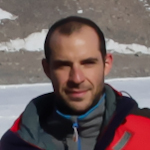 Master’s degree in Marine Biology at the University of Padova; PhD student at the University of Bologna (FishMed-PhD).
Master’s degree in Marine Biology at the University of Padova; PhD student at the University of Bologna (FishMed-PhD).
Since 2015 he has been working on national fishery monitoring programs, within the EU-Data Collection Framework, funded by scholarships of Ancona National Research Council (CNR). From 2015 he also has been participating in marine research activities of the Padova University, at the Hydrobiological Station of Chioggia. His fields of interest are inherent to the biological life cycles of commercial fish species of the Mediterranean and the Antarctic areas (notothenioids). In particular, he investigated reproductive traits of these species thought histological analyses of gonads, age structure/growth cycle by means of otoliths’ readings and some trophic features using the stomach content analyses.
He collaborated in more than 10 scientific trawl surveys in Italian water and joined the 38th Italian expedition to Antarctica (2022/2023).
Google Scholar Scopus - Author ID: 57192875066 Research Gate: Federico Calì
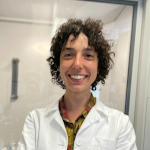 Environmental scientist, graduated at the University of Bologna.
Environmental scientist, graduated at the University of Bologna.
Since 2022 she is PhD student in Polar Science at the university Ca'Foscari (Venice), with a focus on the photochemistry of mercury at snow-air interface in polar regions.
More...
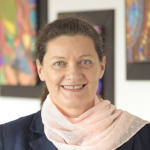 Anna Maria Fioretti graduated in Geology at the University of Padua (Italy) in 1983 and in 2007 she obtained a Master in Science Communication. Since 1985 she has been working for the National Research Council (CNR) at the Center for the Study of the Eastern Alps that afterwards became part of the Institute of Geosciences and Earth Resources. Her scientific activity focused on the genesis and evolution of magmas and extraterrestrial rocks (meteorites). She took part in three expeditions in Antarctica within the Italian National Antarctic Research Program.
Anna Maria Fioretti graduated in Geology at the University of Padua (Italy) in 1983 and in 2007 she obtained a Master in Science Communication. Since 1985 she has been working for the National Research Council (CNR) at the Center for the Study of the Eastern Alps that afterwards became part of the Institute of Geosciences and Earth Resources. Her scientific activity focused on the genesis and evolution of magmas and extraterrestrial rocks (meteorites). She took part in three expeditions in Antarctica within the Italian National Antarctic Research Program.
She was member of the Polar Research Committee of the CNR (CRP) and of the National Scientific Committee for Antarctica (CSNA). In 2017-2021 she was appointed as Science Attaché at the Embassy of Italy in Australia. Back to Italy, she was seconded at General Directorate for Global Affairs of the Italian Ministry of Foreign Affairs (MAECI) as an expert on Antarctic matters.
After retiring, she is now continuing her cooperation with the MAECI, on a voluntary basis, and she represents the CNR in the Strategic Board of the Ice-Memory Foundation.
 BSc Degree in Geology at the University of Pisa in April 2016, with a thesis on the acquisition of new dendrochronological curves for the implementation of the existing dataset of Larix decidua Miller in Alta Val di Sole. In October 2017 she pursued a MSc Degree in Geological Sciences and Technologies at the University of Pisa, with a dissertation on new surface exposure ages (3He) of deposits and surfaces of glacial erosion in Northern Victoria Land for the reconstruction of Pleistocene variations of the East-Antarctica sheet. Postgraduate trainee at the Scottish Universities Environmental Research Center (SUERC) in Glasgow (UK) from January to April 2018, and UniPi fellow (August-September 2018). PhD (2018-2022) in Science and Management of Climate Change (Ca' Foscari University of Venice) with a project focused on the development of a new Continuous Flow Analysis system (CFA) for the determination of biomass burning tracers, trace elements and insoluble dust particles in Alpine ice cores, with palaeoclimatological reconstructions of the Grand Combin (Switzerland) and Weißseespitze (Austria) glaciers. Currently research fellow at the CNR Institute of Polar Sciences (CNR-ISP) in Venice Mestre, for the FISR-Ice Memory-An International Salvage Program project. Her project focuses on the implementation of hardware/software systems for the development of innovative analytical techniques for the analysis of ice cores through CFA systems.
BSc Degree in Geology at the University of Pisa in April 2016, with a thesis on the acquisition of new dendrochronological curves for the implementation of the existing dataset of Larix decidua Miller in Alta Val di Sole. In October 2017 she pursued a MSc Degree in Geological Sciences and Technologies at the University of Pisa, with a dissertation on new surface exposure ages (3He) of deposits and surfaces of glacial erosion in Northern Victoria Land for the reconstruction of Pleistocene variations of the East-Antarctica sheet. Postgraduate trainee at the Scottish Universities Environmental Research Center (SUERC) in Glasgow (UK) from January to April 2018, and UniPi fellow (August-September 2018). PhD (2018-2022) in Science and Management of Climate Change (Ca' Foscari University of Venice) with a project focused on the development of a new Continuous Flow Analysis system (CFA) for the determination of biomass burning tracers, trace elements and insoluble dust particles in Alpine ice cores, with palaeoclimatological reconstructions of the Grand Combin (Switzerland) and Weißseespitze (Austria) glaciers. Currently research fellow at the CNR Institute of Polar Sciences (CNR-ISP) in Venice Mestre, for the FISR-Ice Memory-An International Salvage Program project. Her project focuses on the implementation of hardware/software systems for the development of innovative analytical techniques for the analysis of ice cores through CFA systems.
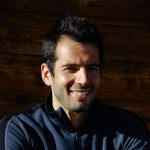 He received his master degree in nuclear and particle physics from Milano-Bicocca University in 2014. His background ranges from applied particle physics to environmental radioactivity and high-energy physics. His work at the nuclear fission reactor in Pavia (Italy) introduced him to the ice core science field. He did his PhD (2014-2017) at the Niels Bohr Institute (Copenhagen, Denmark), working on ice core continuous flow analysis systems and past sea ice reconstructions. He continued his research on climate reconstructions at the Niels Bohr Institute, at the Italian National Research Council and at the University of Venice in 2018 and 2019. Between 2020 and 2022 he was Marie Curie fellow at the University of Venice with a project on computer vision and Artificial Intelligence techniques applied to ice core analyses. Since September 2022 he works on glacier modeling via deep neural networks in collaboration with the University of California, Irvine. He is particularly interested in exploring AI and Machine Learning approaches to Earth System Science problems.
He received his master degree in nuclear and particle physics from Milano-Bicocca University in 2014. His background ranges from applied particle physics to environmental radioactivity and high-energy physics. His work at the nuclear fission reactor in Pavia (Italy) introduced him to the ice core science field. He did his PhD (2014-2017) at the Niels Bohr Institute (Copenhagen, Denmark), working on ice core continuous flow analysis systems and past sea ice reconstructions. He continued his research on climate reconstructions at the Niels Bohr Institute, at the Italian National Research Council and at the University of Venice in 2018 and 2019. Between 2020 and 2022 he was Marie Curie fellow at the University of Venice with a project on computer vision and Artificial Intelligence techniques applied to ice core analyses. Since September 2022 he works on glacier modeling via deep neural networks in collaboration with the University of California, Irvine. He is particularly interested in exploring AI and Machine Learning approaches to Earth System Science problems.
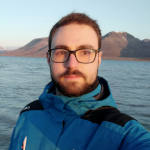 Master’s degree in Natural Sciences (University of Milano), PhD Candidate in Environmental, Geological and Polar Sciences and Technologies (University of Siena) co-financed by the Italian National Antarctic Museum (MNA). Current position: research fellow at the Institute of Polar Sciences of the CNR (CNR-ISP) in Milano.
Master’s degree in Natural Sciences (University of Milano), PhD Candidate in Environmental, Geological and Polar Sciences and Technologies (University of Siena) co-financed by the Italian National Antarctic Museum (MNA). Current position: research fellow at the Institute of Polar Sciences of the CNR (CNR-ISP) in Milano.
Currently the research concerns the use of satellite images for the estimation of optical and thermal properties of glaciers at the margins of the Antarctic Ice Sheet as a part of the PNRA18 Project Bio-Geo Albedo feedback at Antarctic Ice-Sheet margins. Previously the research concerned the analysis by remote sensing of ablation areas in Antarctica, i.e., wind crust and blue ice, with particular attention to the snow megadune fields on the Antarctic plateau. He attended two PhD courses at The University Centre in Svalbard (NO), with which took part in a campaign in Nordaustlandet Island. As a visiting PhD student, he spent a period at the Finnish Meteorological Institute of Helsinki (FIN) and taught as a tutor for master’s and bachelor laboratories of Cartography and Geographic Information System at the University of Milan. Author of seven scientific publications in international journals.
 Ministero dell'Universita e Ricerca
Ministero dell'Universita e Ricerca
Programma Ricerche Artico
Programma Nazionale di Ricerca in Antartide
 Ministero degli Affari Esteri e della Cooperazione Internazionale
Ministero degli Affari Esteri e della Cooperazione Internazionale
L'Italia e l’Artico
L’Italia e l’Antartide
CNR-ISP
National Research Council
Institute of Polar Sciences
c/o Scientific Campus - Ca' Foscari University Venice - Via Torino, 155 - 30172 VENEZIA MESTRE (VE)
Phone: +39 041 2348547 - E-mail: protocollo.isp AT pec.cnr.it
Fax: +39 041 2348 549 - Codice Fiscale: 80054330586 - P.I.:02118311006
Unless otherwise indicated, the content of this site is licensed : Attribution Non Commercial Share Alike 4.0 International (CC BY-NC-SA 4.0)
Privacy policy e Cookie policy - Transparent administration (CNR)








